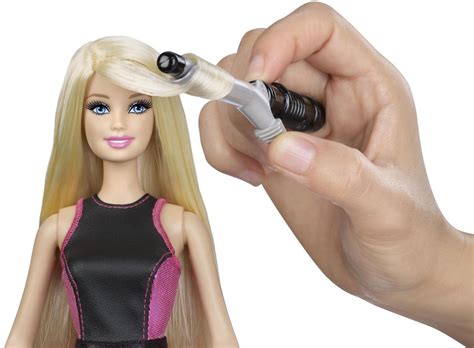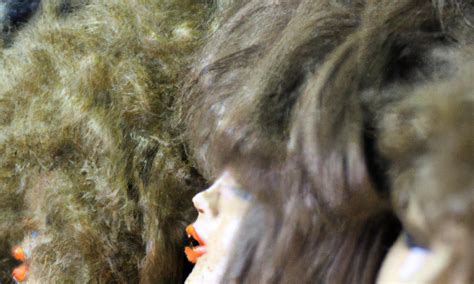Whether it’s to combat hair loss, enhance style, or experiment with different looks, wigs have become an increasingly popular option for men in recent years. With a wide variety of styles, materials, and constructions available, choosing the right wig can be a daunting task. This comprehensive guide will delve into the different types of wigs for men, their pros and cons, and how to select the perfect one for your needs.

Types of Wigs for Men
Lace Front Wigs
Lace front wigs feature a thin lace material along the hairline that creates a natural, seamless blend with the skin. This type of wig offers the most realistic hairline and can be styled in various ways.
Pros:
* Natural-looking hairline
* Versatile styling options
* Durable and long-lasting
Cons:
* More expensive than other types of wigs
* Requires professional installation and maintenance
Monofilament Wigs
Monofilament wigs have a mesh cap base that allows for air circulation and breathability. Each hair is individually hand-tied into the mesh, creating a natural-looking scalp.
Pros:
* Breathable and comfortable
* Natural-looking scalp
* Can be parted and styled freely
Cons:
* More delicate than other types of wigs
* Requires careful handling and maintenance
Synthetic Wigs
Synthetic wigs are made from artificial fibers, such as nylon or polyester. They come in a wide range of styles, colors, and lengths.
Pros:
* Affordable
* Easy to care for
* Available in a variety of styles
Cons:
* Less natural-looking than human hair wigs
* Can be prone to tangling and matting
Human Hair Wigs
Human hair wigs are made from 100% human hair, providing the most natural look and feel. They can be cut, colored, and styled like natural hair.
Pros:
* Most natural-looking and realistic
* Can be styled like natural hair
* Durable and long-lasting
Cons:
* More expensive than synthetic wigs
* Requires professional care and maintenance
Why Wigs Matter for Men
Wigs offer numerous benefits for men, including:
- Concealing hair loss: Wigs can help men who are experiencing hair loss due to medical conditions, alopecia, or aging to regain their confidence and self-esteem.
- Enhancing style: Wigs allow men to experiment with different hairstyles and colors without permanently altering their natural hair.
- Protection from the elements: Wigs can shield the scalp from sun damage, wind, and cold weather.
- Medical reasons: Wigs can be used to cover scars, burns, or other medical conditions affecting the scalp.
Selecting the Right Wig for Men
Choosing the right wig requires careful consideration of several factors:
- Hair loss condition: Determine the type and extent of hair loss to select a wig that meets your specific needs.
- Head shape and size: Measure your head circumference and shape to ensure a comfortable and secure fit.
- Desired style: Consider your personal style and preferences when selecting the length, color, and texture of the wig.
- Material and construction: Choose a wig material and construction that aligns with your budget, lifestyle, and desired appearance.
- Maintenance requirements: Be aware of the care and maintenance requirements associated with different types of wigs before making a purchase.
Tips and Tricks for Men Wearing Wigs
- Choose a professional wig stylist: A skilled wig stylist can help you select the right wig and provide expert installation and maintenance.
- Use wig tape and glue: Adhesives can help secure the wig and prevent slippage.
- Keep your scalp clean and healthy: Regular scalp cleaning is crucial for preventing skin irritation and promoting hair growth, even if you are wearing a wig.
- Store your wig properly: When not in use, store your wig in a cool, dry place away from direct sunlight to prolong its lifespan.
Table 1: Comparison of Wig Types
| Type | Material | Construction | Pros | Cons |
|---|---|---|---|---|
| Lace Front | Thin lace | Hand-tied | Natural hairline, versatile styling | Expensive, requires professional installation |
| Monofilament | Mesh | Hand-tied | Breathable, natural scalp | Delicate, requires careful handling |
| Synthetic | Artificial fibers | Machine-made | Affordable, easy care | Less natural-looking, prone to tangling |
| Human Hair | Human hair | Hand-tied or machine-made | Most natural-looking, can be styled like natural hair | Expensive, requires professional care |
Table 2: Wig Maintenance Requirements
| Type | Cleaning | Styling | Repair |
|---|---|---|---|
| Lace Front | Wash every 1-2 weeks | Use heat tools sparingly | Professional repair |
| Monofilament | Wash every 2-3 weeks | Use heat tools cautiously | Professional repair |
| Synthetic | Wash every 3-4 weeks | Avoid heat tools | DIY repair |
| Human Hair | Wash as needed | Can be styled like natural hair | Professional repair |
Table 3: Wig Prices
| Type | Price Range |
|---|---|
| Lace Front | $500-$2,000+ |
| Monofilament | $300-$1,500+ |
| Synthetic | $50-$300 |
| Human Hair | $2,000-$5,000+ |
Table 4: Wig Lifespans
| Type | Lifespan |
|---|---|
| Lace Front | 6-12 months |
| Monofilament | 4-8 months |
| Synthetic | 2-4 months |
| Human Hair | 1-2 years+ |
In conclusion, wigs for men offer a diverse range of options to meet various needs, from concealing hair loss to enhancing style. By understanding the different types, materials, and construction methods, men can make informed decisions and select the wig that best suits their individual requirements and preferences. With proper care and maintenance, wigs can provide years of confidence, comfort, and style.
